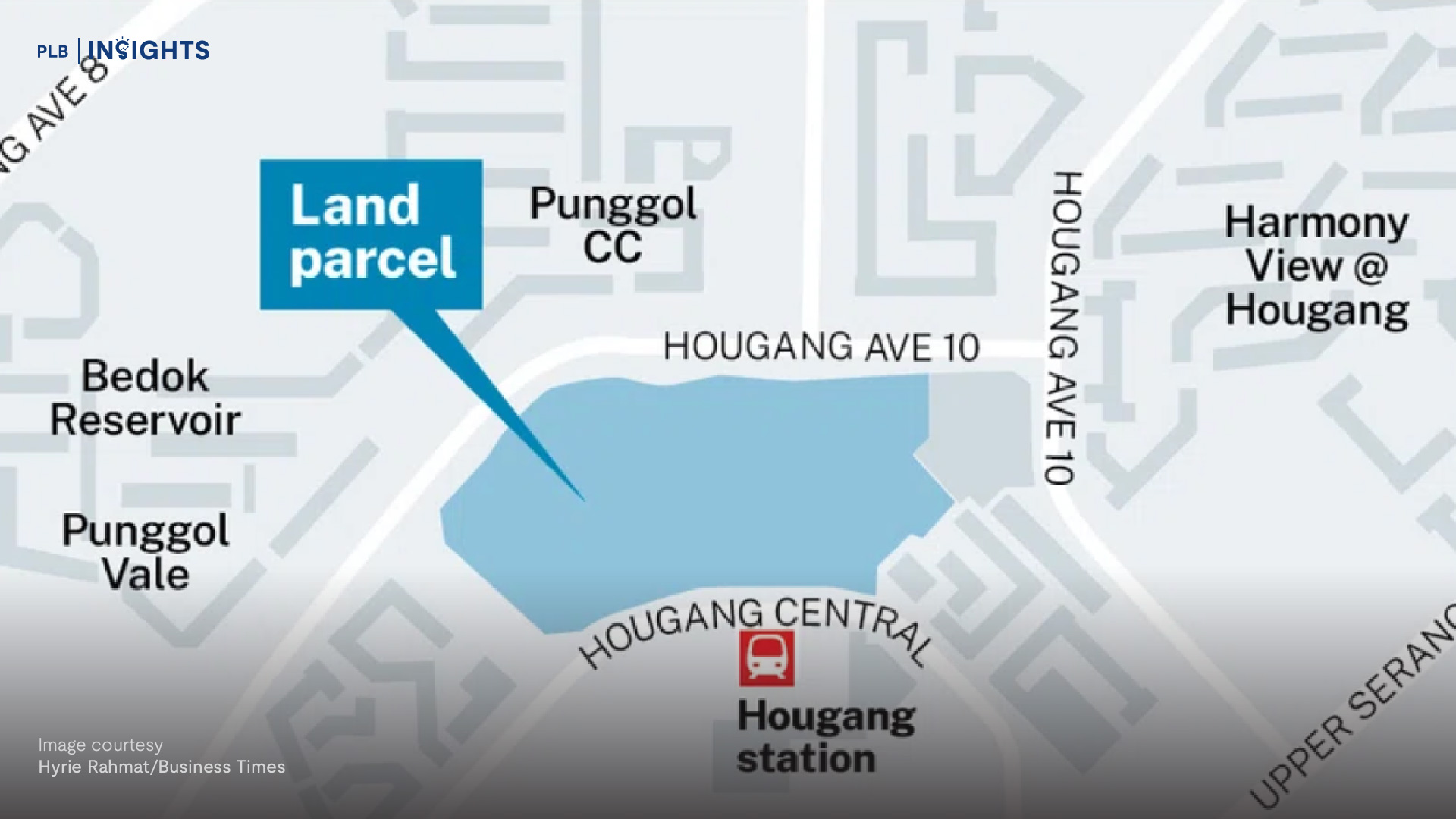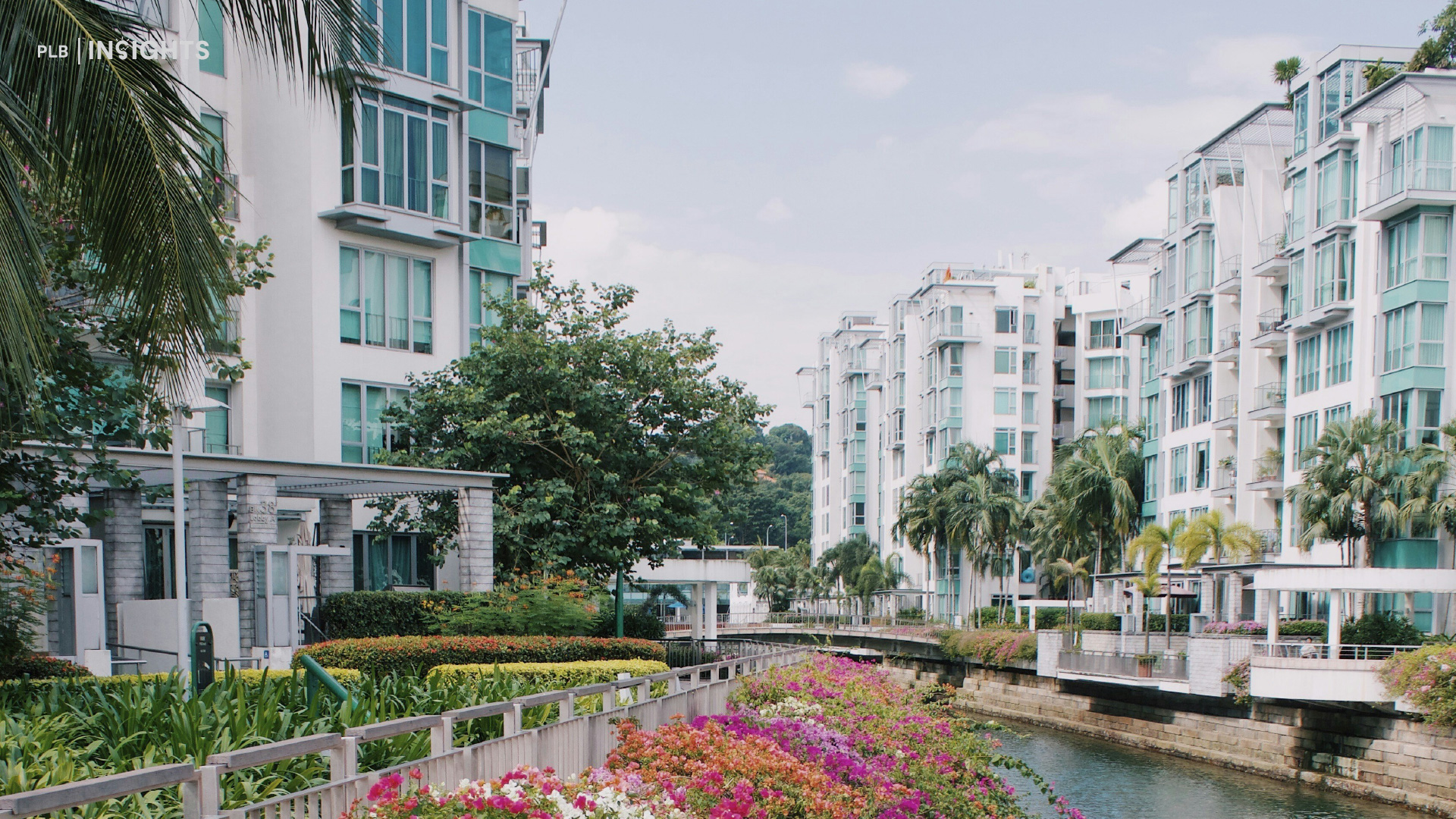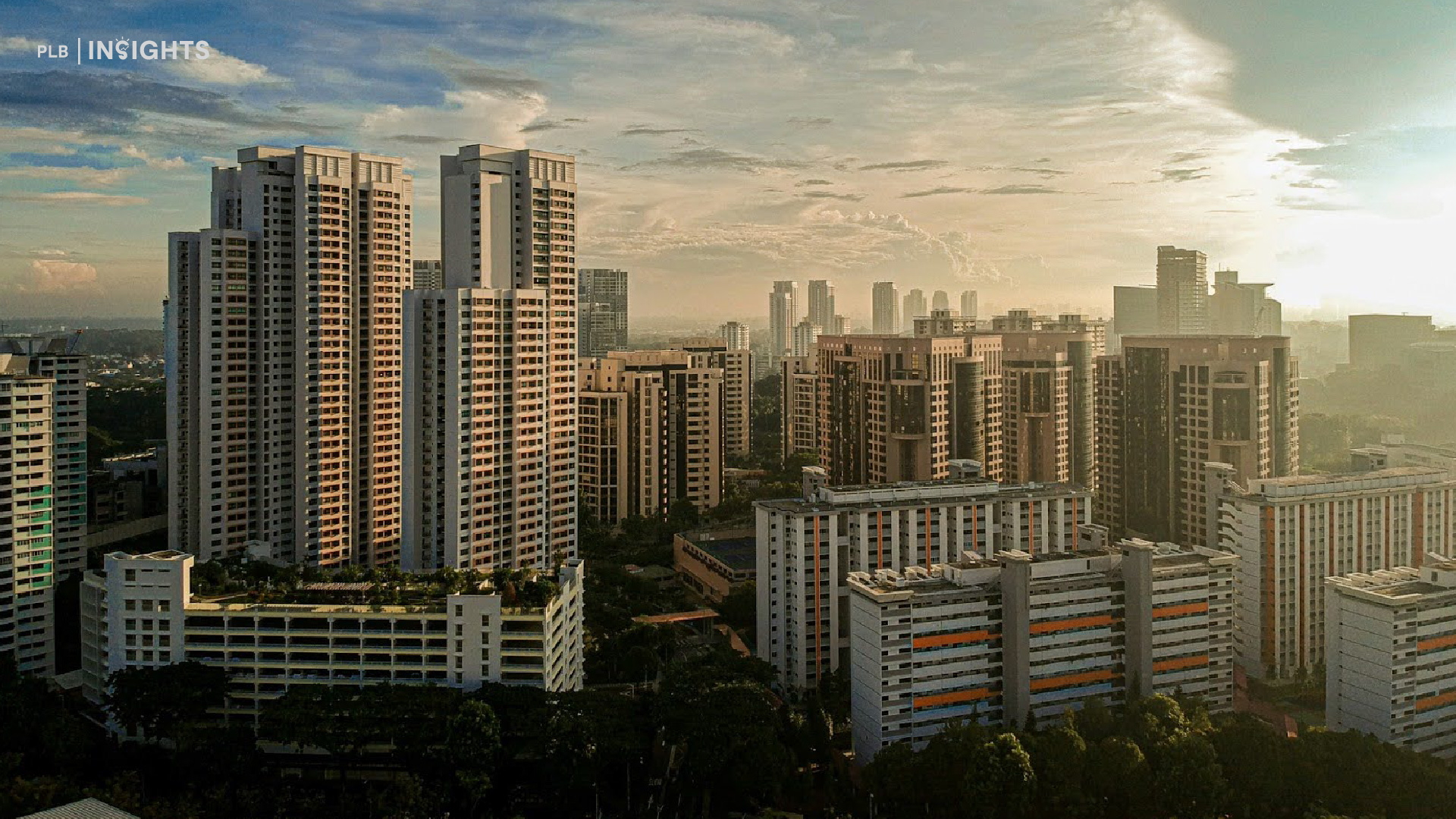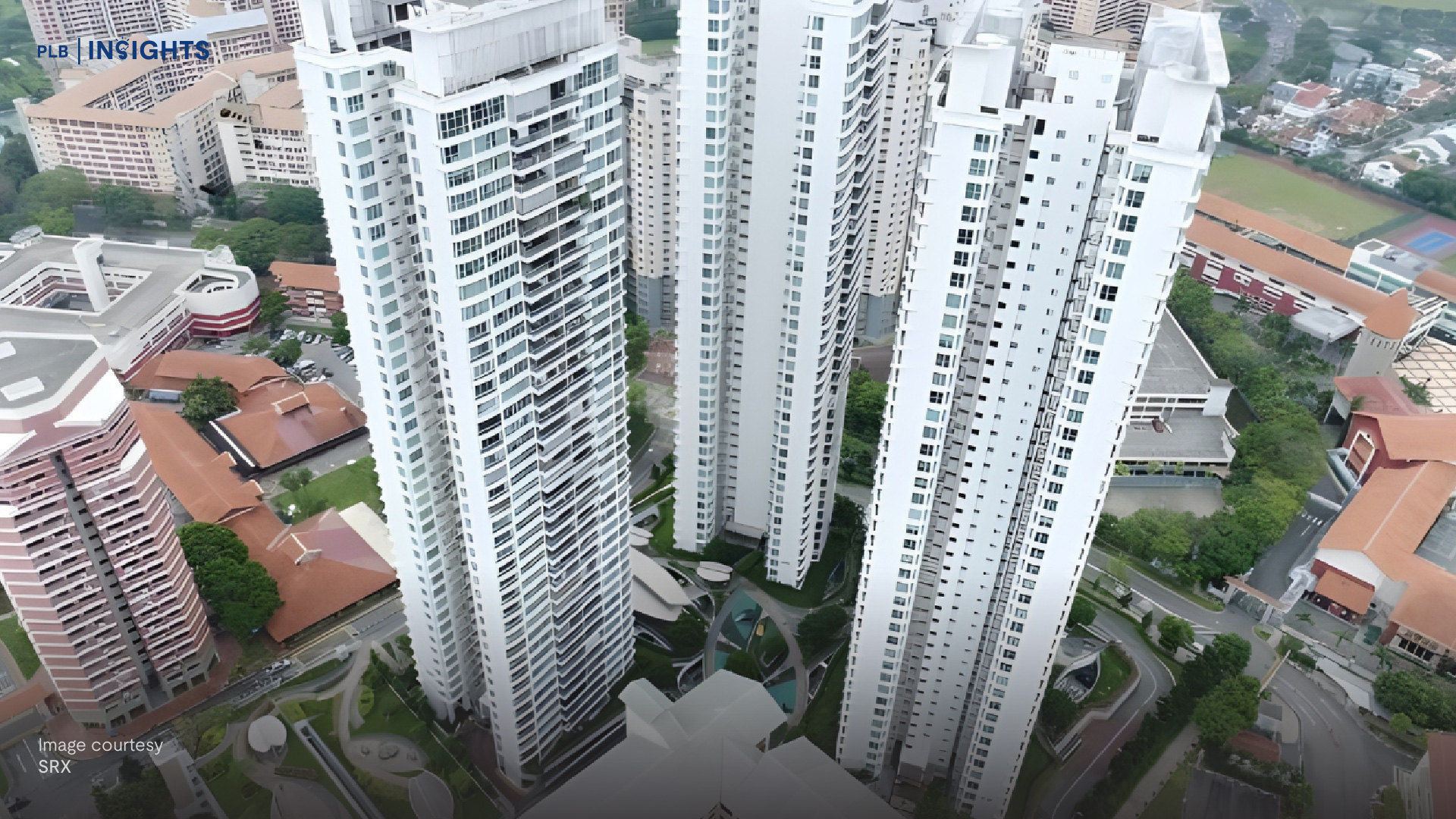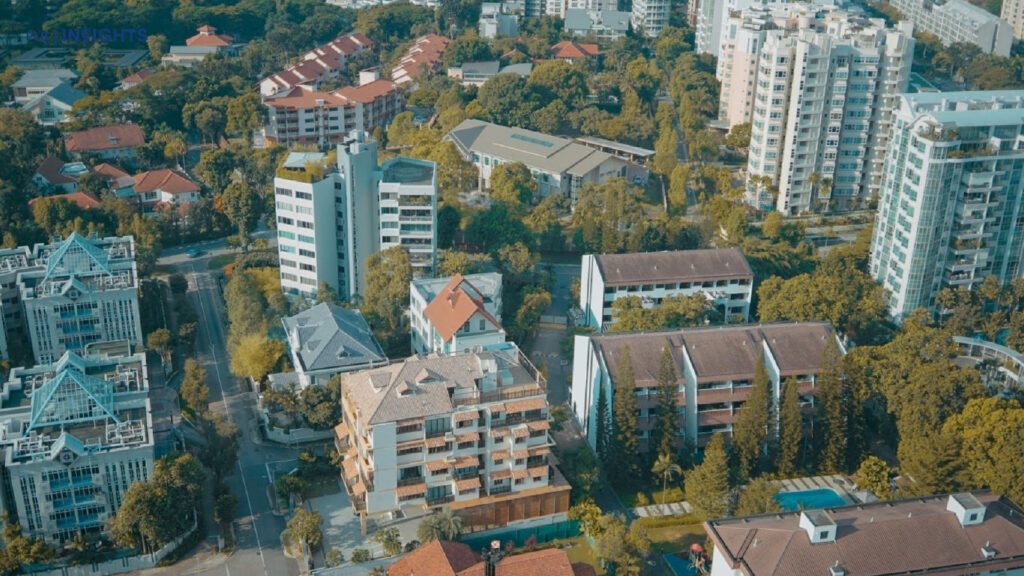
Has the additional buyer’s stamp duty (ABSD) hike done its job in cooling foreign demand?
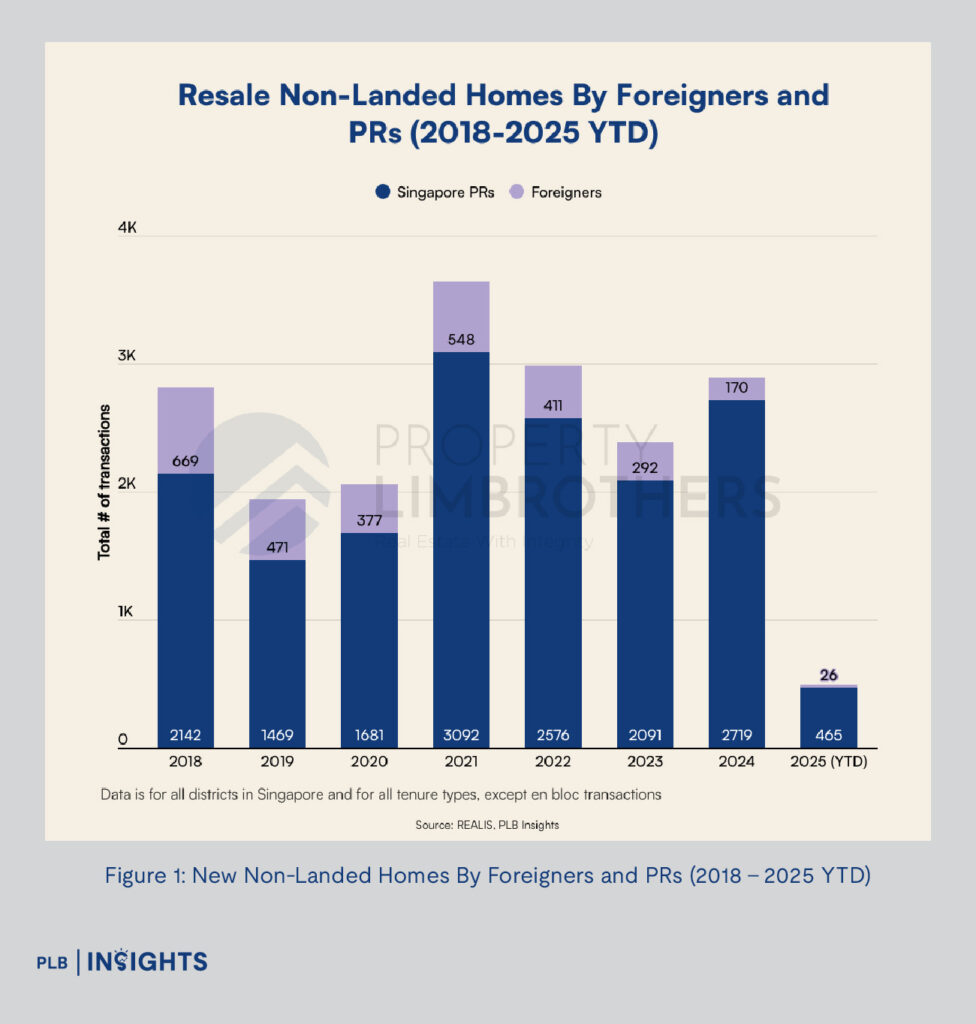
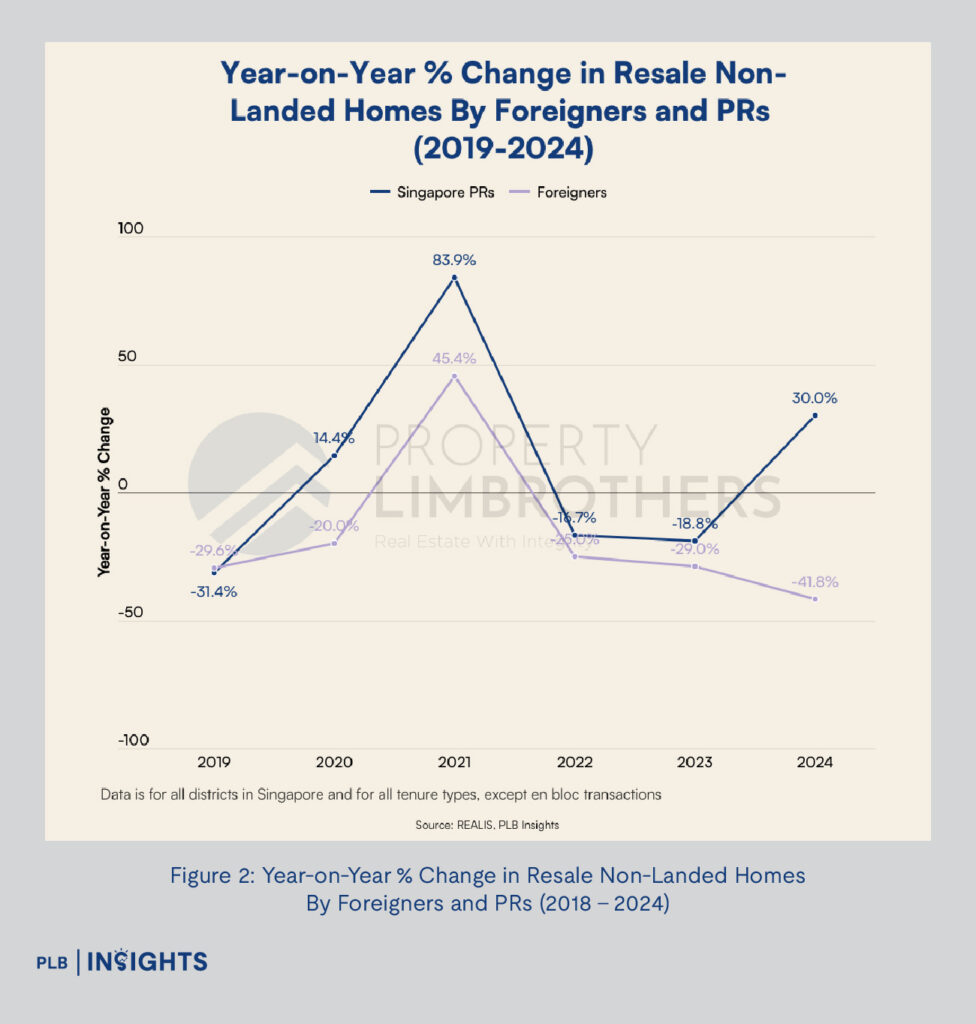
The data suggests that it has in 2024. Singapore’s property market experienced a significant shift in buyer activity in 2024, particularly among foreigners. Resale transactions by foreign buyers fell sharply by 41.8%, from 292 in 2023 to 170 in 2024. In contrast, Singapore PRs took on a larger role in the market, with resale transactions increasing by an impressive 30.0%, from 2,091 in 2023 to 2,719 in 2024.
This redistribution of activity highlights the impact of the ABSD hike, which was designed to dampen foreign demand and encourage local participation in the property market.
However, in 1Q 2025 (as of 26 March 2025), foreigners’ transactions for new launches have already reached one-third of the 2024 total, with 30 recorded.
Population Growth Amid Cooling Measures
Interestingly, the fall in foreign transaction volumes in 2024 occurred against the backdrop of Singapore’s population growth. In 2024, Singapore crossed the six-million milestone, with the Population in Brief report revealing a 5% increase in the non-resident population, which now stands at 1.86 million. This group includes foreign workers, domestic helpers, dependents, and international students.
Despite this population growth, targeted cooling measures like the ABSD hike have successfully reduced foreign participation in the property market, underscoring the government’s ability to manage demand effectively.
Impact on New Sale Properties
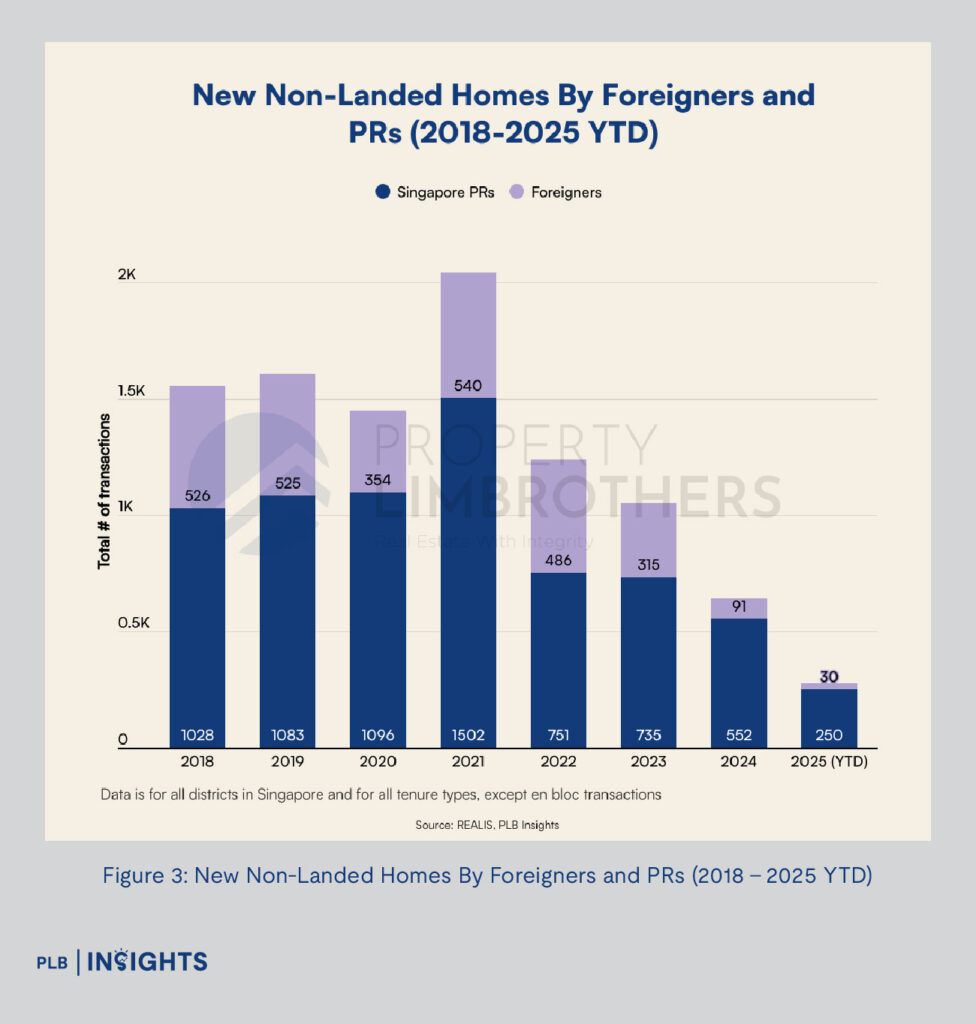
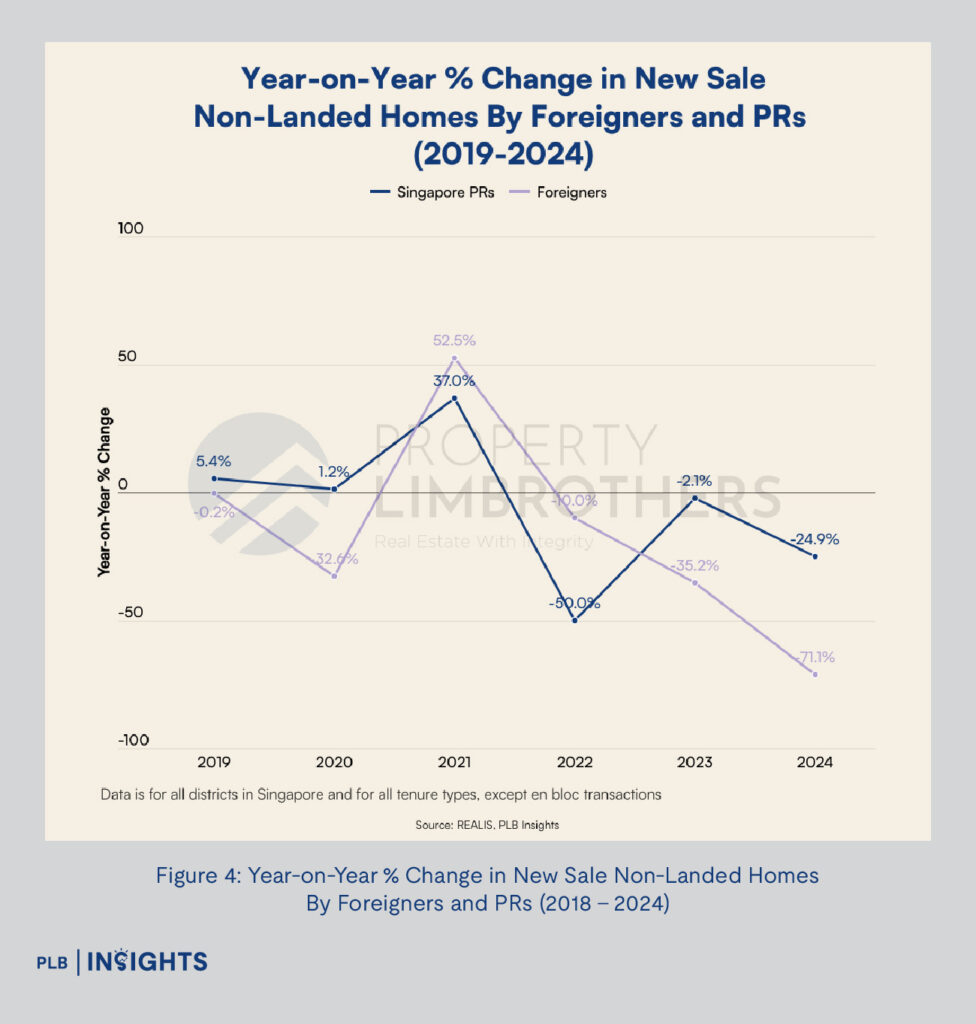
When it comes to new sale properties, the ABSD hike was even more impactful. Transactions by foreigners in Singapore’s new sale market plunged by a staggering 71.1%—from 315 in 2023 to just 91 in 2024. This drastic decline coincided with the government’s decision to double the ABSD rate for foreign buyers from 30% to 60% in April 2023, underscoring the policy’s effectiveness in curbing foreign demand.
Yet, the fall in transaction volumes was against a backdrop of population growth. Singapore’s population crossed the six-million milestone in 2024, largely driven by a growing non-resident population. The Population in Brief report, released in September 2024 by the National Population and Talent Division (NPTD), highlighted a 5% rise in the non-resident segment, which now accounts for 1.86 million people.
This backdrop of population growth, coupled with targeted cooling measures, has significantly reshaped the landscape of Singapore’s property market.
Foreigners’ transactions also appear to be more resilient in the resale condominium segment. In 1Q 2025 (as of 26 March 2025), there were 26 foreigner resale transactions, accounting for approximately 15% of the total recorded in 2024. This contrasts with the new launch segment, which recorded 30 transactions in the same period.
Foreign Transactions Tumble in Prime Districts
A closer look at the numbers by region reveals a shift towards suburban areas.
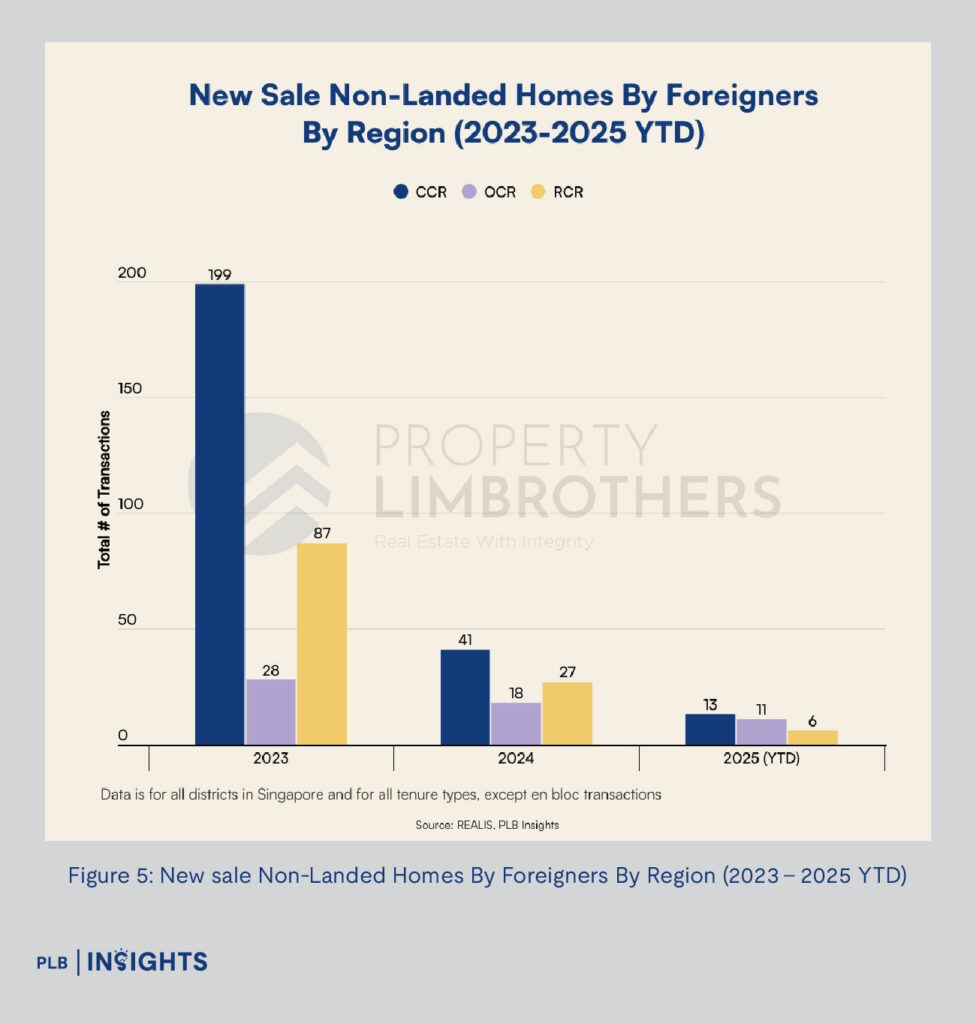
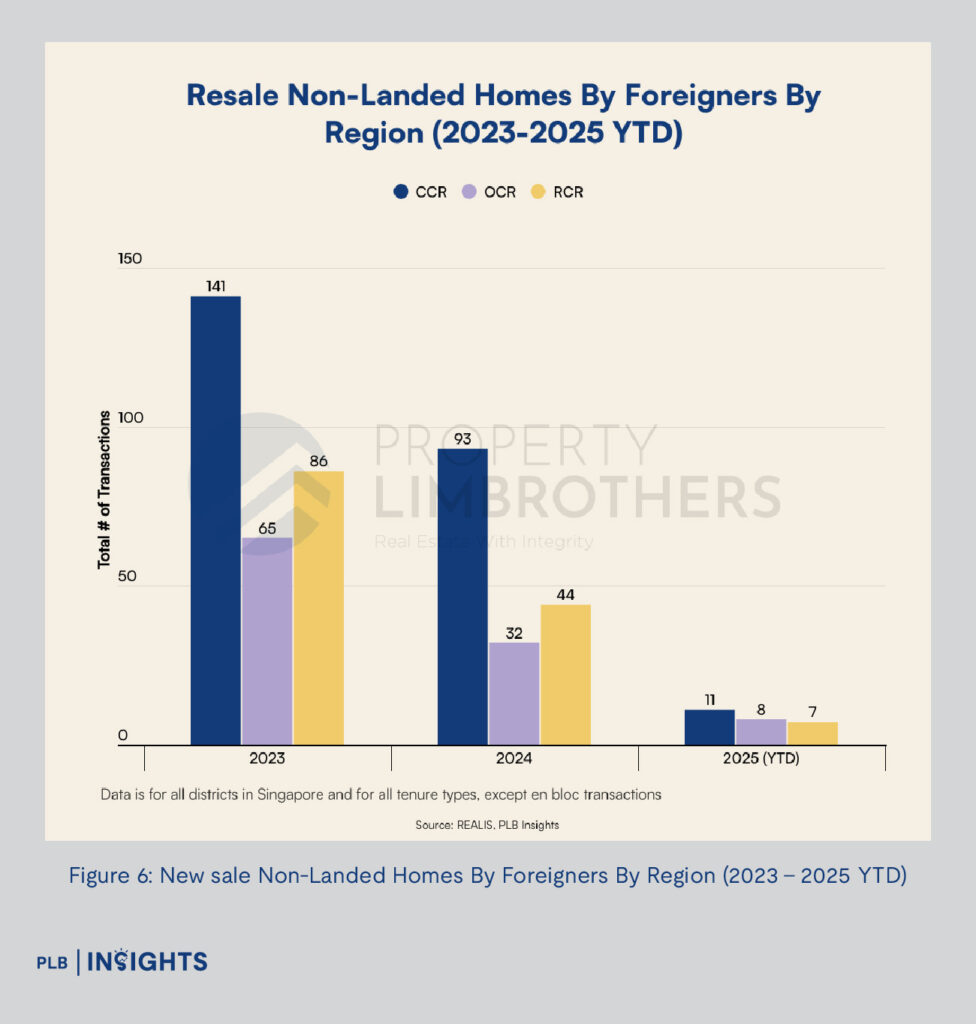
The cooling effect was particularly evident in prime areas like the Core Central Region (CCR) when comparing the absolute number of transactions. Foreign transaction volumes in the CCR declined significantly, from 141 in 2023 to 93 in 2024—a sharper drop than observed in the Rest of Central Region (RCR) and Outside Central Region (OCR), as illustrated in Figure 5.
National Trends in Foreign Buyers
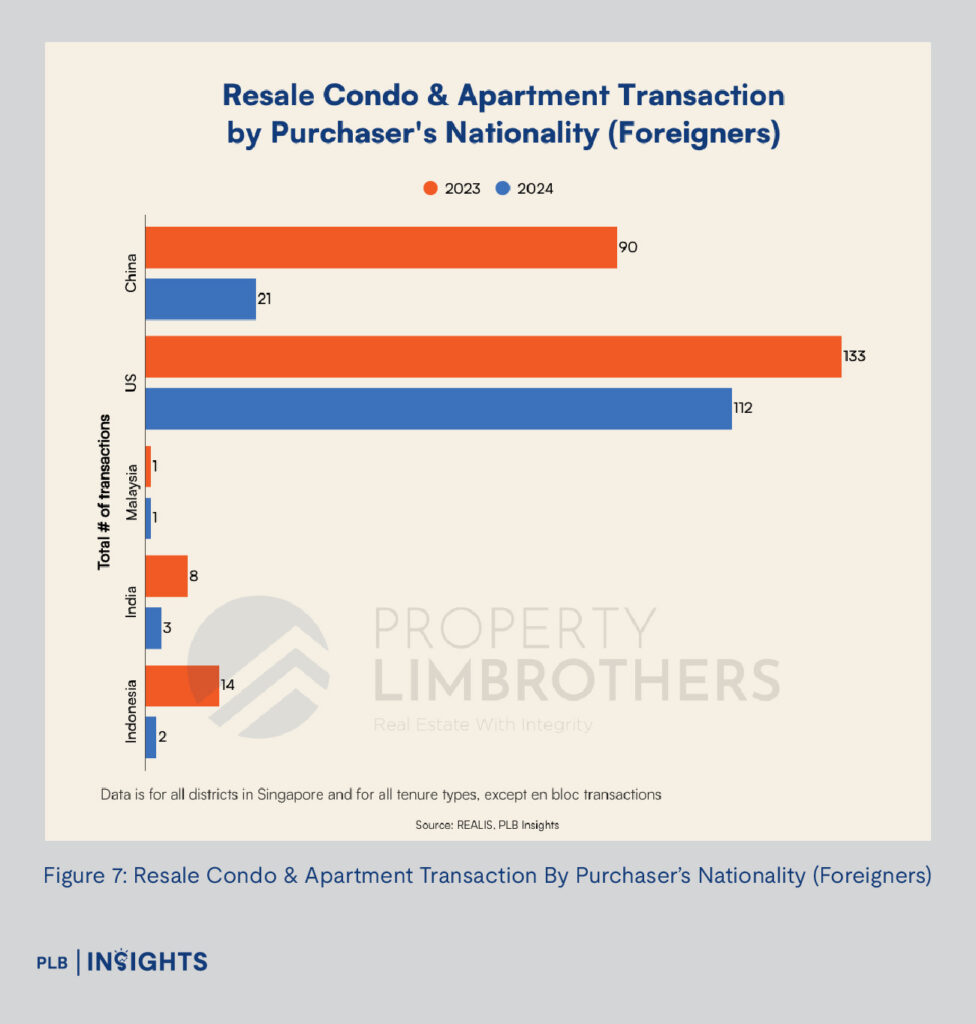
Chinese buyers, who have historically been significant participants in Singapore’s property market, showed a notable reduction in activity. Caveats lodged by Chinese nationals decreased from 90 in 2023 to 21 in 2024, reflecting a significant pullback.
In contrast, American buyers maintained relative consistency in transaction volumes, with 133 caveats in 2023 and 112 in 2024.
This consistency is attributed to the ABSD exemption available to citizens of the United States, as well as Iceland, Liechtenstein, Norway, and Switzerland, for their first residential property purchase in Singapore. This exemption likely continues to provide an incentive for these groups to remain active in the market despite the broader impact of cooling measures.
Conclusion
The ABSD hike has proven effective in curbing foreign demand in Singapore’s property market, particularly in segments prone to speculative activities. The sharp decline in transactions by foreign buyers, especially in new sale properties and prime districts, underscores the success of these targeted measures in reducing speculative investments that often drive up property prices.
At the same time, the data highlights a shift in market participation. Local buyers, including PRs, have played a more significant role in the market, particularly in the resale segment. This indicates that the cooling measures are encouraging a more sustainable demand driven by residents rather than speculative foreign activity.
Additionally, the continued demand from certain foreign buyer groups, such as Americans and others exempt from ABSD, reflects the nuanced effects of these policies. While overall foreign participation has declined, these exemptions highlight the importance of balancing regulatory measures with maintaining Singapore’s attractiveness as a global property investment destination.
As the market evolves alongside population growth and changing buyer demographics, future cooling measures should remain focused on speculative activities to ensure market stability and affordability. A thoughtful approach will help sustain a resilient real estate sector that supports long-term economic growth and provides opportunities for local residents.
Stay Updated and Let’s Get In Touch
Stay up to date with the latest real estate insights! Our goal is to provide transparent real estate information to you. Should you have any questions, do not hesitate to reach out to us!
Disclaimer: Information provided on this website is general in nature and does not constitute financial advice
PropertyLimBrothers will endeavour to update the website as needed. However, information may change without notice and we do not guarantee the accuracy of information on the website, including information provided by third parties, at any particular time. While every effort has been made that the information provided is accurate, individuals must not rely on this information to make a financial or investment decision. Before making any, we recommend you consult a financial planner or your bank to take into account your particular financial situation and individual needs. PropertyLimBrothers does not give any warranty as to the accuracy, reliability or completeness of information which is contained in this website. Except insofar as any liability under statute cannot be executed, PropertyLimBrothers, its employees do not accept any liability for any error or omission on this website or for any resulting loss or damage suffered by the recipient or any other person.

